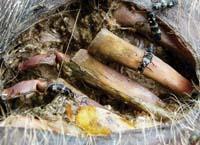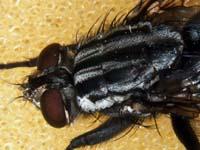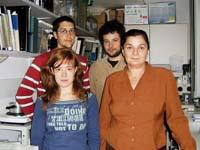Insects to solve crimes

When these larval flies grow and get older, they leave the corpse. In fact, in this same body are also its predators. Therefore, it may happen that a crime will be studied and no insect larvae will be discovered, as insects have already left the body. However, in this area there will be other insects that can also give clues.
In addition to investigating the growth or development of these insects, it is necessary to analyze what comes to kill over the days. It is a complex task, especially in the Basque Country. In fact, the knowledge about the growth time of the necrogafos insects in the Basque Country and about the distribution patterns is quite scarce. How to know what insects are in the corpse?
Colonizers of corpses
Researchers of the forensic entomology service of the UPV-EHU analyze the colonizing insects of corpses and their breeding times. To do this, they first have several traps on open ground. Of course, these traps have a hook to attract insects that in each case interest. For example, insects that feed on dead animals are attracted by animal viscera. They attract mainly mature female flies. The problem is that females are more difficult to identify, while males have more obvious characteristics of their own. Therefore, the researchers grow larvae of these females to obtain males that allow a more reliable identification of the species.
Therefore, in cases where only females fly, they carry them in cages to the laying of eggs and raise them to a new generation. This new generation makes it possible to know with greater certainty the fly population. Moreover, being males and females, they continue to put them and, therefore, the breeding colony is maintained. They are placed in a suitable culture medium in conditions similar to those in a corpse. They measure their size every day until they complete the growth charts. To improve these graphs tests are carried out with different temperatures. It is not the same as the breakdown of the corpse occurs in winter than in summer.

Moment of death
All larval phases of some species have already been described. Therefore, once the corpse is located and the larvae are collected, they can know the species of fly to which it belongs, as well as predict the life time of the person, analyzing the culture tables of these larvae.
The sampling carried out to date on the Leioa and Bilbao campus has found differences between insects that inhabit urban and rural areas. For example, some species have not been found in Bilbao, but in Leioa. And vice versa. It is a really interesting fact. The crime can happen in one place and then the body has been transferred.
In short, this work aims to create a reference collection of insect species that may be interested in forensic activities. This collection can be interesting for future forensic investigations that can be carried out in Euskal Herria.






